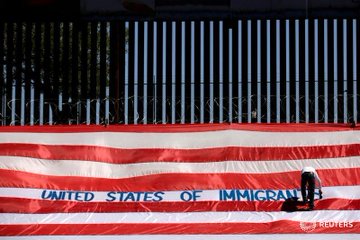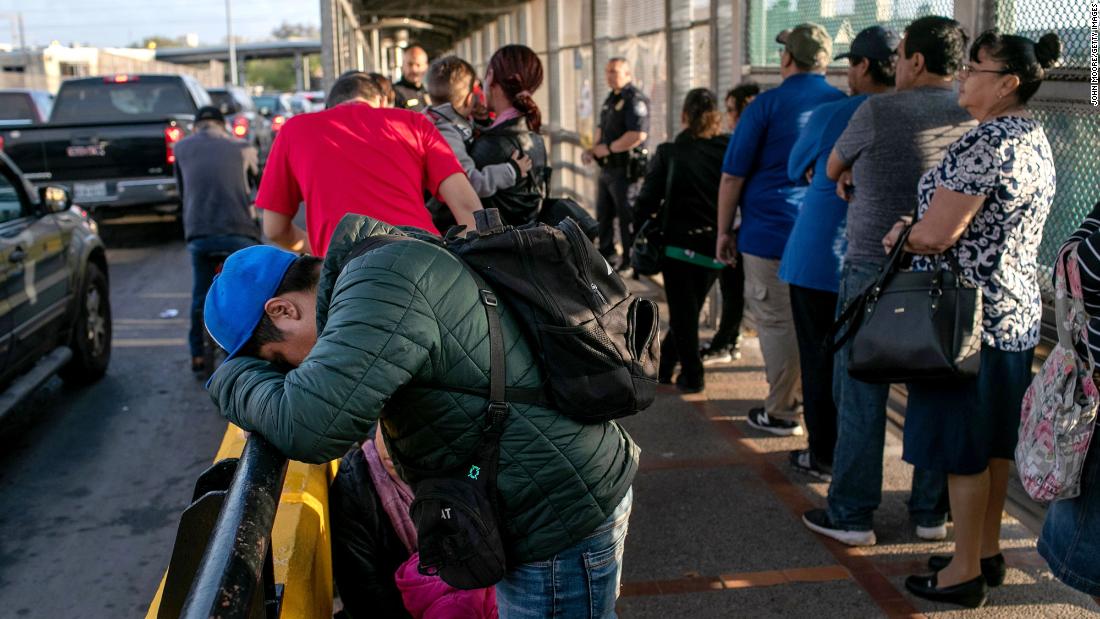
This United States of America was built by immigrants and no one can prove otherwise.
The criminalization of immigration, especially the scale at which it is happening is a dangerous trend.
When a so-called leader begins attacking immigrants and not acknowledge that he too is a descendant of immigrants, this most certainly begins his downfall. Let us not forget about all the kids that are still in cages, while his friends cash in.
No doubt there are Americans hating diversity. They want to get rid of other Americans. Millions of them hate fellow Americans, but there are millions more who oppose them and what they really stand for.
POTUS panic is beginning to set in as. 53 Republican Senators, most of which are descendants of immigrants and don't like #Trump much. Only 4 have to break to have a real trial. @realDonaldTrump is feeling the pressure for a reason. Does his panic appear to be real?
I have traveled throughout Latin America, and I can honestly say these immigrants come to #USA to seek a safe haven. I have also stared down death squad members and seen their barbaric murders. That's their reason for seeking asylum.
According to the experts, there are four types of immigrants - American citizens, Residents, Non-immigrants and Undocumented. Most of US fall under one of these categories.
American Citizens
These are people who were either born in the USA or who have become naturalized after three or five years as permanent residents. These citizens can never be deported unless citizenship was obtained through fraud. You can work legally and receive any public benefits you qualify for. In addition, you can petition for the legal status of your spouse, child, parent or sibling.
Permanent or Conditional Residents
Legal Permanent Residents are those who have a Green Card. The holder, or lawful permanent resident, is someone who has been granted authorization to live and work in the United States on a permanent basis. As proof of that status, you are granted a permanent resident card, commonly called a green card. You can become a permanent resident in several different ways. Most individuals are sponsored by a family member or employer in the U.S. Other individuals may become permanent residents through refugee or asylee status or other humanitarian programs. In some cases, such as when your spouse can’t or won’t file for you, you may be eligible to file for yourself.
Conditional residents are those who have been married less than two years before they received their green card. This type of residency also requires that you and your spouse jointly file to remove the condition within two years of receiving your green card or the card will be terminated and you will face deportation.
To convert your conditional status to permanent status, you will need to submit a Petition to Remove the Conditions on Residence (Form I-751), with supporting evidence and the appropriate fees, up to 90 days before your conditional residence status expires. If you apply before the 90-day limit, the application will be returned to you. If you fail to file before the two-year anniversary, your card and your conditional residence status will both expire and you could be deported. You have a three-month window to file your application. You must submit, in a timely manner, the application, the appropriate filing fee, and any supporting evidence in order to qualify.
Both types of residents have permission to live and work permanently in the U.S. unless they are guilty of a serious criminal offense or some other immigration violation. If you are a resident, you can also petition for legal status for your spouse or child.
Generally, if you have been a lawful permanent resident for five years, you can apply to become a naturalized U.S. citizen. But if you were granted a green card based on marriage to a U.S. citizen, then you can apply after three years. Just because you received a green card doesn't mean you will automatically become a citizen. You have to show that you deserve it. If you were arrested for any reason if you owe any taxes or have failed to pay child support you should discuss your matter with an immigration attorney before filing.
Non-Immigrants
People who fall into this category are in the country legally, but only on a temporary basis. Examples include:
Students F-1 visa
Business visitors or tourists B1/B2 visas
Fiancées K-1 visa
Individuals granted temporary protected status.
In general, recipients of these visas don’t intend to immigrate. If the application is fraudulent or you overstay or otherwise violate the terms of the visa, your legal status will change to undocumented. Even so, a high percentage of undocumented immigrants came on legal visas.
Undocumented
People who are in the country without permission, or illegally, are called undocumented. This means they do not have permission to live in the U.S. They are not authorized to work and they have no access to public benefits like health care or a driver’s license.
Any person who is undocumented runs the risk of being deported or having deportation proceedings started against them at any time. This creates a highly stressful and unstable living situation.
There are two ways people can become undocumented. The first, as was the case with my family, is to overstay a legal temporary visa. The second is to enter the U.S. without going through a port of entry.


